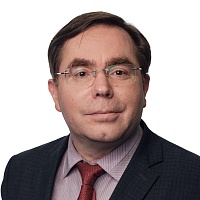
At a time of military and political confrontation, accentuated attention to values becomes a priority. It is the difference in values and normative approaches, and not only geopolitics, that is postulated as the main reason for the current developments. As the struggle intensifies, value and normative revisionism begins to supplement geopolitical attitudes. Different values and the norms and rules associated with them are becoming increasingly tangible barriers separating centres of power. Therefore, mutual semantic misunderstanding has now become a key problem in international relations. One can often hear that this value gap is no longer bridgeable.
A special issue in value politics is the role of tradition and historical memory. To what extent can it be postulated that tradition retains its significance as a basic value orientation in the 21st century conditions? To what extent does it influence the adoption of political decisions and their perception in society? Is it possible to talk about the modernisation of tradition today? These issues are closely connected with the balance between national and universal understandings of values. Are traditions and the values and behavioural patterns based on them different for each society and for each cultural-historical environment? Or do the realities of globalisation melt various national values into universal values that are equally significant for everyone? How significant is the rejection of universal values in favour of tradition for society?
These issues of balance or imbalance between the national and the universal acquire their specificity in the macro-regional dimension of modern politics. They are connected with the already familiar dichotomy of the West and the Non-West. Africa is becoming one of the key regions for this analysis. The escalating geopolitical “struggle for Africa” is combined with an acute value struggle. The same situation is typical for other macro-regions of the global Non-West: for the Middle East, Asia and Eurasia, and Latin America.
Separately, it is worth highlighting the problem of constructing values. Are they really primordially inherent in man and society? Or do they become a secondary product of social engineering, reflecting the same politics of advancing interests?
The value-normative agenda has now gone beyond geopolitics. The activation of the green transformation and the global energy transition, the sharp strengthening of “biopower” in the Covid era, conflicts in sports and Olympic politics, acute questions about racial and gender equality, the rights of migrants, and different understanding of historical memory — all this directly affects the rapid evolution of global values in the modern world and will be in the focus of attention of the Valdai Club’s expert programme.
This programme continues the Morality and Law Programme.